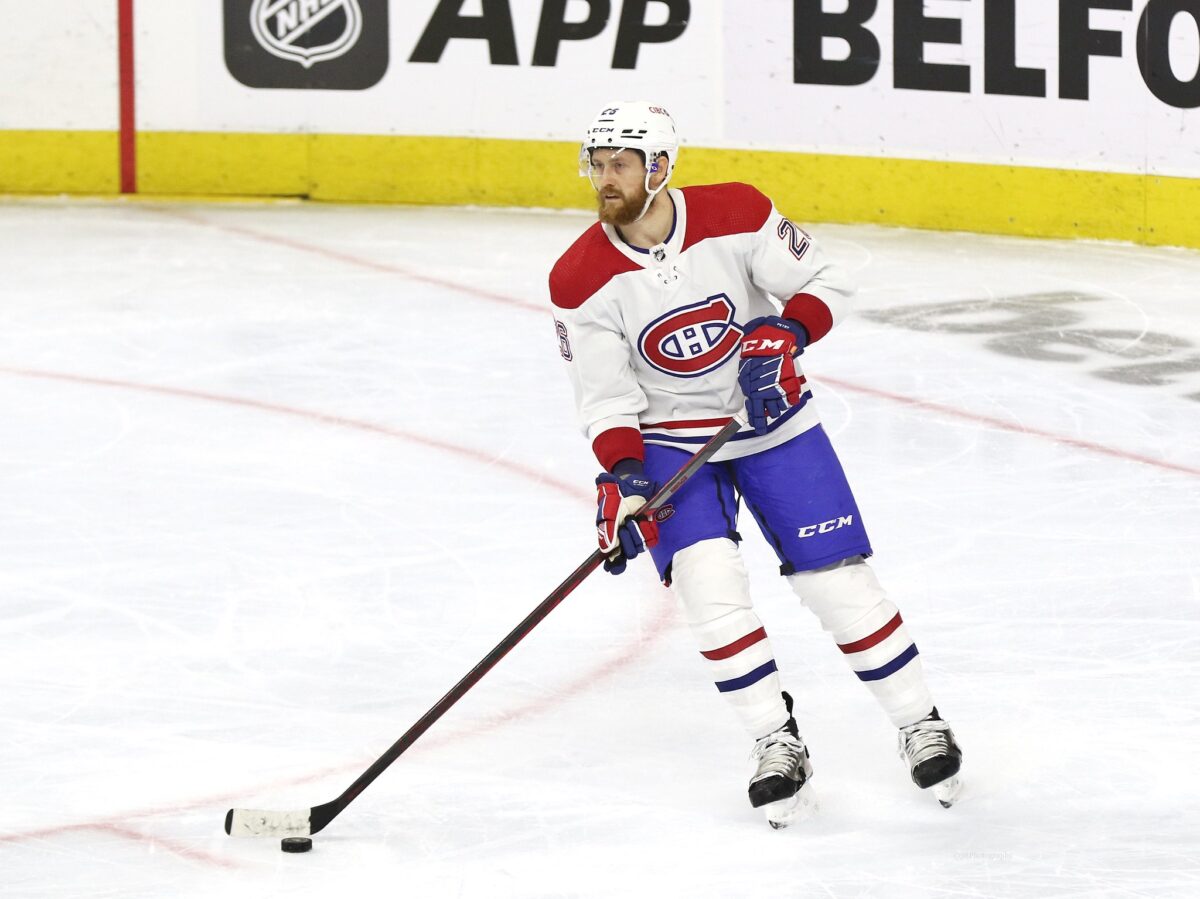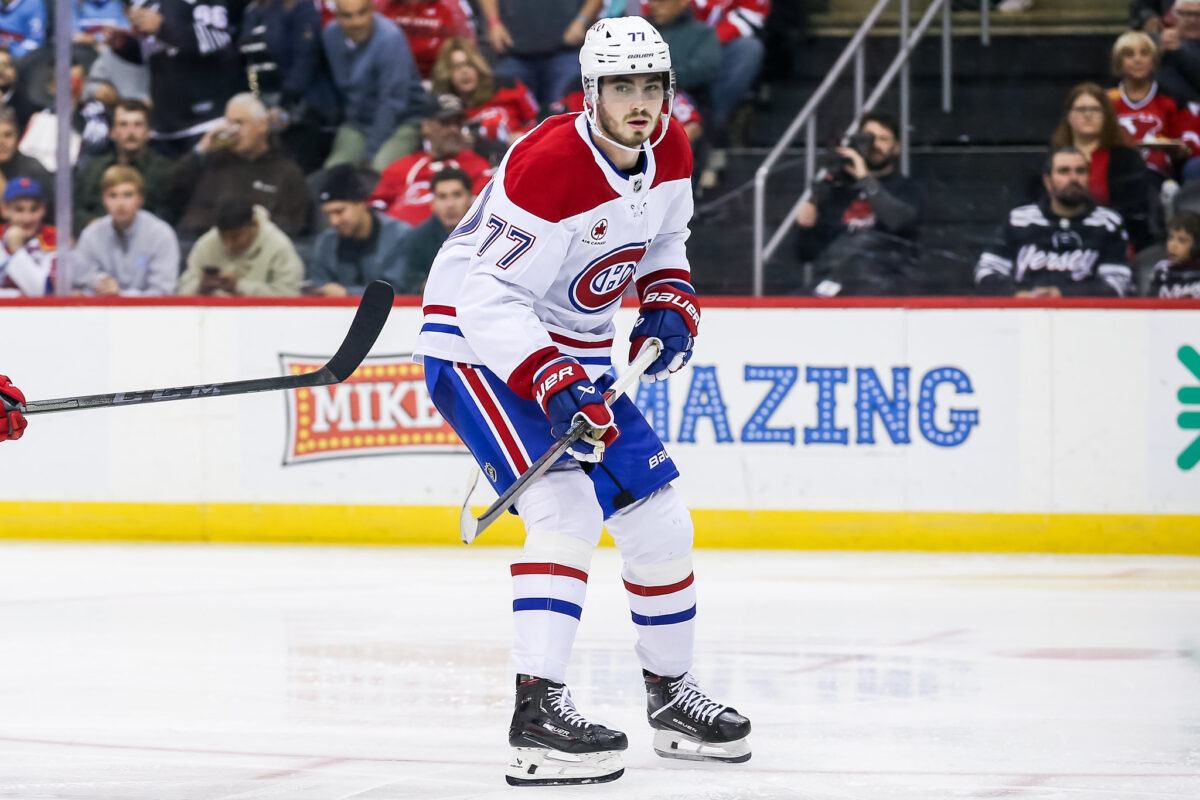It has been just over two years that Montreal Canadiens general manager (GM) Kent Hughes has been at the helm of the ongoing rebuild, and stating that he wanted to see the team “in the mix” and battling for the last playoff position may have been his first error, given that his team is floundering this season.
Related: Canadiens Prospect Pool an Embarrassment of Riches
It’s important to learn from mistakes, but it’s better to learn from the mistakes of others. In this case, learning from the Ottawa Senators’ rebuild, who are only one point ahead of the 31st place Canadiens and are now, according to information from an NHL source shared with Jimmy Murphy, they are looking to make a major shakeup.
How does that affect the Canadiens? Montreal must learn from their mistakes, especially as a division rival, and what they are willing to trade could impact the trade market.
Canadiens Can Learn From Bad Example
Thankfully, executive vice president Jeff Gorton and Hughes have been patient. Building a team is not just about choosing the best player available at the draft. It’s about adding players that will play a role, from top-line center to second-pairing shutdown defenseman, in helping the team succeed. Also, Gorton and Hughes are slowly making Montreal a destination for players, not just by adding quality prospects but also by showing respect to veterans. Hughes has been able to trade players to destinations where they are most comfortable, as seen with the Jeff Petry trade, both times.

Despite Montreal’s deep prospect pool, not all will play for the club. The first lesson to learn from the Senators is when to let go of prospects. Unfortunately, the reality is that some players won’t pan out, regardless of their draft status. The Senators used first-round picks on defensemen Jacob Bernard-Docker (2018) and Lassi Thomson (2019). Bernard-Docker is averaging under 14 minutes per game and hasn’t reached his potential, while Thomson played 18 NHL games and now plays in Europe. Both players have been surpassed on their depth charts. While there’s still some hope to get a top-four defender out of Bernard-Docker, but holding onto assets too long means they lost trade value that could have helped fill in gaps elsewhere on their roster as part of any shakeup.
The second lesson is stability. There’s been lots of discussion in both French and English about moving on from head coach Martin St. Louis or hiring a veteran coach to consult him. That isn’t a great idea. It would most likely create confusion on a roster that’s already having problems finding its identity. It also would remove a very popular coach who still very much has the trust of his players.
That lesson overlaps with the third lesson, which is culture. It’s almost a cliche by now, but it matters. By remaining stable with one plan, the young core players will have time to assimilate the hard lessons needed to develop. It will also keep players from becoming complacent or growing a sense of entitlement, regardless of the size of their contracts.
Like Montreal, Ottawa was expected to take a step forward this season. They finished last season strong and looked poised to be a playoff team in 2024-25. However, they are in year six of their rebuild and are floundering.
Canadiens Will Struggle
The fact that Ottawa might be willing to part with anyone could have a major impact on the Canadiens’ options. If a team is looking to add a veteran right-handed defenseman, and Travis Hamonic is available, that could chill the hot seller’s market Hughes was trying to take advantage of with David Savard.
If teams are looking for a bottom-six forward, Nick Cousins jumps above names like Joel Armia and Christian Dvorak. If bigger names are available out of Ottawa, they will be any contender’s first call, which means Montreal will have to wait and see what happens out of the Canadian capital before Hughes can make his move.
For Canadiens fans, the realization is that their club will struggle, and for some time. Montreal is in the Eastern Conference basement because they are an incomplete team. They have not filled all the roles a contender must fill, and in some cases, they have players who have failed to fill the ones they were expected to fill.
We’re not even a quarter into the season yet, but it is enough to be concerned. Kirby Dach was brought in to solve the top-six center issues. He was considered a blue-chip option before his knee injury and has struggled to return to the form seen in his short 2023-24 season. But it’s more than just one player. With the exception of Cole Caufield and Brendan Gallagher, the team has been woefully inconsistent. Progress in a rebuild is not always a linear upward trajectory. There will be dips, and this season shows that.

The Canadiens are allowing 3.8 goals per game (31st in NHL), and while goaltender Sam Montembeault hasn’t been at the same level as last season, he isn’t the main issue. Montreal has five defensemen who have played 110 games or less. While they are all highly skilled, they are also still learning how to apply those skills to the NHL.
The team’s offence is not faring much better, ranked 16th in the NHL, averaging 2.8 goals per game. Even though Nick Suzuki is on pace for about 80 points, which would give the Canadiens the second player to reach that mark in the last 24 years, only four players are on pace to score more than 50 points. If not for special teams both being ranked in the top 10, the results could be far more dire this season – the power play and penalty kill are masking many of the team’s issues.
The final lesson to learn from the Senators is patience. The fanbase might be hungry for wins, but the rebuild has only lasted two years so far. Ottawa is in year six, the Buffalo Sabres are in year 14, and both teams supposedly have the missing parts to contend for the playoffs. Montreal doesn’t. Only two players drafted under the Hughes regime have made it to the NHL, and rushing the progress of the rest would cause significant problems. In the end, if management wants to avoid the pitfalls that caused prolonged rebuilds that are torturing other NHL clubs, they will need to learn from their mistakes to avoid making the same ones.
